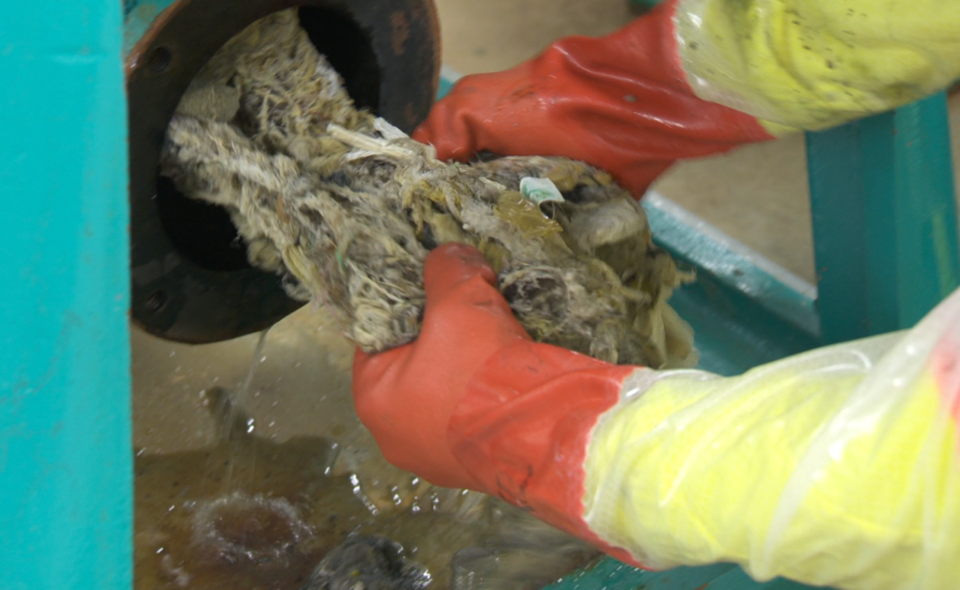People flush some pretty weird things down the toilet. Just ask Metro Vancouver and municipal sewage workers.
They’ve discovered all kinds of odd things – from cellphones and hard hats, to a Teenage Mutant Ninja Turtles action figure, coins, sunglasses, parts of car door, pieces of lumber and even dead-and-bloated former family fish.
They’ve yet to come across any grown-up alligators that were flushed down the toilet as babies, but they do routinely come across an even bigger menace to Metro Vancouver’s sewer system: flushed disposable wipes.
Wipes can clog sewer lines, pumps and even your home’s pipes. While the label may say “flushable” there’s no such thing and there are no regulations about what manufacturers can say about their products.
Unlike toilet paper, wipes don’t break down when they’re in the sewer system. So what happens to them? Well, it’s kind of gross. They mix with grease and harden into blockages that are called “fatbergs” that cause clogged sewer overflows that can damage basements, businesses and the environment.
Cleaning out blockages caused by wipes, grease and other unflushables costs Metro Vancouver and individual municipalities around $2 million a year.
With so much money being flushed down the toilet because of the blockages, Metro Vancouver recently launched an eight-week “Never Flush Wipes” education and awareness campaign.
“People flush some pretty weird things, but it’s the mundane items like wipes that cause the big problems,” said Metro Vancouver Utilities Chair Darrell Mussatto. “It costs us millions of dollars each year to clear clogs and keep the pipes flowing.”
The playful campaign – which is themed “Adult Toilet Training” — focuses on reaching women in public washrooms, in Cineplex theatres, through social media and at select Shoppers Drug Mart stores.
“It’s really important to reach our target audience in relevant places like bathrooms and at point-of-sale,” said Mussatto.
The Never Flush Wipes campaign was developed after a two-month pilot in Pitt Meadows. The results of the pilot campaign’s effectiveness on changing residents’ flushing habits were measured using a public opinion survey and by monitoring the Baynes Road Sewage Pump Station.
Fifty percent of the women surveyed remembered the “Never Flush Wipes” campaign, but Metro Vancouver was able to see the results of the campaign in the sewers themselves.
Using a “wipes catcher” that was specially designed for this project (picture a large tennis racket), some interesting wipe-flushing stats were collected: before the pilot, every hour an average of 18 wipes entered the sewage pump station in Pitt Meadows. During the campaign that number dropped to 12 and after it dropped to six per hour.
Metro Vancouver also plans to track the number of flushed wipes to measure the success of the current campaign.
“We are heartened by the results of the pilot and hope to see similar results region wide,” said Director Mussatto. “We encourage everyone to be mindful of what they flush down the toilet.”
As well as wipes, there are some other common culprits that shouldn’t be flushed, including: facial tissues, diapers, cotton balls, tampons, dental floss, paper towels and even hair - many of which bind together to block pipes.



